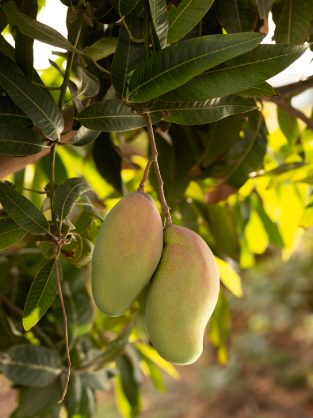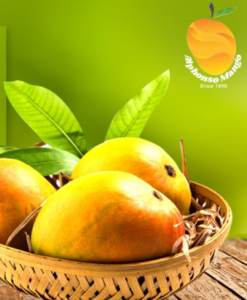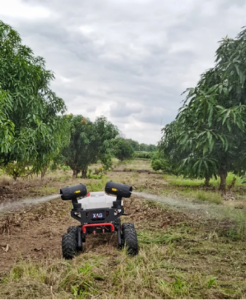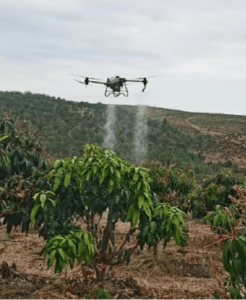Natural ripening of Alphonso mangoes involves allowing the fruit to mature and ripen under natural conditions without the use of artificial ripening agents. Here are the key aspects and steps involved in the natural ripening process:
Key Aspects of Natural Ripening
Ethylene Production: Ethylene is a natural plant hormone produced by mangoes that triggers and regulates the ripening process. As the mangoes mature, they produce ethylene, which accelerates ripening.
Temperature and Humidity: The ambient temperature and humidity play crucial roles in the ripening process. Ideal conditions for natural ripening typically involve moderate temperatures and adequate humidity.
Time: Natural ripening takes several days to a couple of weeks, depending on the ambient conditions and the initial maturity of the mangoes.
Steps for Natural Ripening
Harvesting:
Mangoes should be harvested when they are mature but not fully ripe. Signs of maturity include a slight change in skin color and the fruit beginning to soften.
Selection:
Select undamaged and disease-free mangoes for ripening. Remove any mangoes with signs of decay or bruising.
Cleaning:
Clean the mangoes to remove any dirt or sap that could lead to fungal growth during ripening.
Layering:
Place the mangoes in a single layer in a well-ventilated area. Avoid stacking them to prevent bruising and ensure uniform ripening.
Covering:
Cover the mangoes with a breathable material like a cotton cloth or newspaper. This helps retain the ethylene gas produced by the fruits, facilitating the ripening process.
Temperature and Humidity:
Maintain an ambient temperature between 20°C to 25°C (68°F to 77°F) for optimal ripening. Ensure the area has good ventilation and moderate humidity.
Checking:
Regularly check the mangoes for signs of ripening. As they ripen, the skin color will change to a golden yellow, and the fruit will soften.
Turning:
Gently turn the mangoes every few days to ensure even ripening and prevent any one side from becoming overripe.
Benefits of Natural Ripening
Flavor and Aroma:
Naturally ripened Alphonso mangoes develop a superior flavor and aroma compared to artificially ripened ones.
Nutritional Quality:
Natural ripening preserves the nutritional quality of the mangoes, ensuring they retain their vitamins and minerals.
Safety:
Natural ripening avoids the use of potentially harmful chemicals like calcium carbide, which is sometimes used in artificial ripening.
Texture:
The texture of naturally ripened mangoes is more consistent and desirable, with a creamy and smooth mouthfeel.
Conclusion
Natural ripening of Alphonso mangoes is a straightforward process that enhances the fruit’s natural sweetness, aroma, and nutritional value. By providing the right conditions and allowing the mangoes to ripen at their own pace, you can enjoy the full, rich flavor that Alphonso mangoes are famous for.











